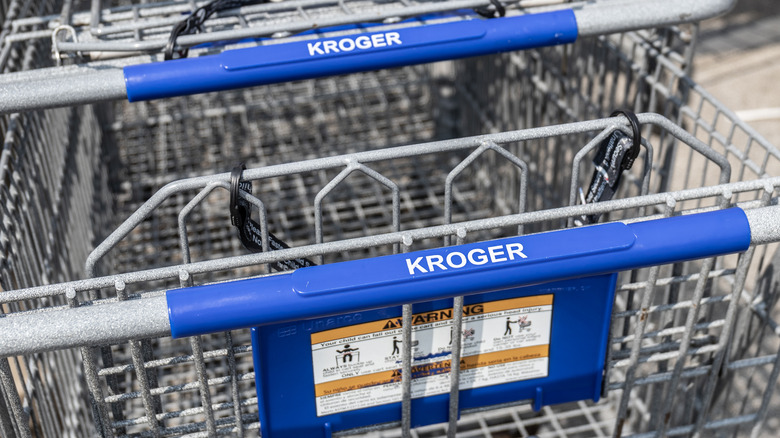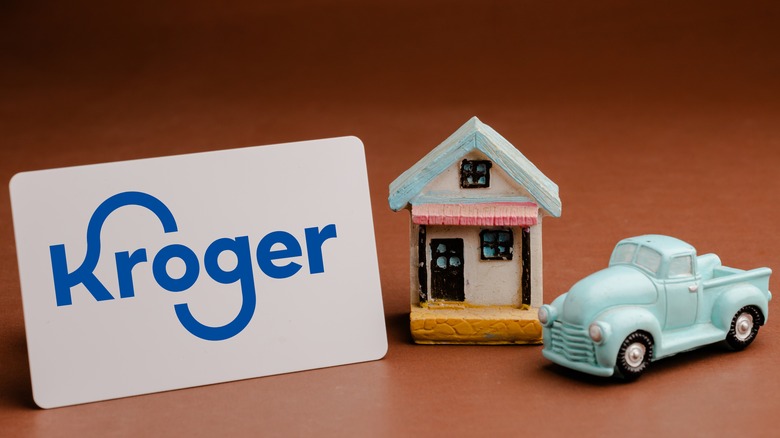What Is Kroger Boost, And How Is It Different From A Loyalty Account?
Corporations far and wide have watched Amazon Prime's subscription-based business model surge to unprecedented success, and one of the oldest grocery stores in the United States is also cashing in on the trend. Kroger has been using its Kroger Plus loyalty program since 2003 which is free to sign up for, gives customers access to coupons and other discounts, and keeps track of fuel points that customers can then redeem for discounts on gas. Kroger Boost is like a paid version of Kroger Plus, with additional perks that come at the cost of a yearly or monthly fee. Soft-launched in 2021, Kroger Boost became a national program in 2022. Customers are free to keep the original Kroger Plus account or pay to 'boost' their rewards through two additional tiers: a $59 and a $99 per year membership.
Although there are other perks, the primary reason most people will choose to pay extra for their loyalty program is free delivery; the less expensive option gives you free next-day delivery while the top tier offers free same-day delivery. Both tiers reward customers with double the fuel points, which could help offset some of the cost of Kroger Boost if you regularly purchase gas from the chain. There are also some discounts exclusive to Boost members as well as monthly free items, though these are more like extra perks rather than the main attraction.
Kroger Boost is a good fit for a specific type of customer
If you find yourself consistently getting your groceries delivered but are tired of delivery fees, the cost of the Boost membership could very well make financial sense for you. And for those who fill up your tank at a Kroger gas station, double fuel points is nothing to scoff at.
The base loyalty program in the form of Kroger Plus is free, and if you're shopping at Kroger without it you're leaving hundreds of dollars in savings on the table for no good reason. Kroger Boost isn't quite as straightforward. To its credit, Kroger Boost is cheaper than Amazon Prime, which is currently $139 per year, and the benefits aren't all that dissimilar. Sure, the products you're purchasing are different between the two companies, but many Americans have grown accustomed to fast delivery no matter what they're buying, and grocery stores are taking notice.
Kroger's CEO recently affirmed the company's long-term commitment to lower prices, but the profit margins in this industry are notoriously slim. By incorporating a membership program like Boost, Kroger can offset some of its costs, thereby leading to lower prices for in-store goods. The grocery chain is certainly not heading towards a mandatory membership style like Costco, but an optional membership program with free delivery is a nice perk to have for the right kind of customer.

